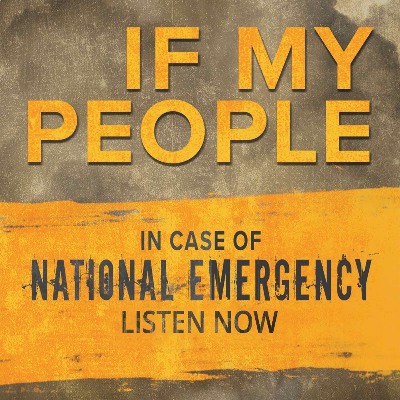Rev. Gary Hall recently called on lawmakers in Washington to stop fearing the gun lobby and fulfill their “moral duty” to restrict guns: “Everyone in this city seems to live in terror of the gun lobby,” Hall said. “But I believe that the gun lobby is no match for the cross lobby.” Hall’s comments are disheartening.
What we’re seeing today is not a gun problem; it’s a moral problem called sin. We are witnessing the rapid deterioration of a nation. We have lost our moral compass...we have lost the fear of the Lord. When the fear of the Lord decreases, evil increases. “A people that values its privileges above its principles soon loses both” (Dwight D. Eisenhower).
One of the Scriptures often used to support banning weapons is found in Proverbs 20:22, “Do not say, ‘I will recompense evil’; wait for the Lord, and He will save you.” This scripture is dealing with vengeance and vigilantism, not self defense.
According to Romans 13:4 one of the purposes of the authorities is to “execute wrath on him who practices evil.” They are God’s avengers: “Men, in a word, must necessarily be controlled, either by a power within them, or by a power without them; either by the Word of God, or by the strong arm of man; either by the Bible, or by the bayonet” (Robert Winthrop; 1809 – 1894).
Please don’t misunderstand...as Christians, I believe that we are to seek peace at every turn and not drape the cross with the flag. But what about self-defense as a last resort and biblical mandates to protect? The Old Testament offers a plethora of examples, but what about the New? It does as well. In Matthew 26:52 Jesus says to Peter, “Put your sword back into its place. For all who take the sword will perish by the sword.” Jesus didn’t denounce the sword, but clarified it’s place. When we take premature emotionally charged action, it may cost us our life.
Later Jesus adds, “Have you come out as against a robber, with swords and clubs to capture me?” If He was a thief and a robber, the clubs and swords would have been justified. In my opinion, these Scriptures imply that weapons do have a place in society. Albeit we must be careful.
Additionally, In Luke 22:36 Jesus says, “But now let the one who has a moneybag take it, and likewise a knapsack. And let the one who has no sword sell his cloak and buy one.” What is one to do with this Scripture? First, I would err on the side of peace, but this isn’t always an option. One thing is certain: a sword was for defense. Jesus initially sent them on a peaceful mission trip where they did not need these items, but now Jesus may have been saying, “I was your provision and your safety, and I still am, but I also want you to be prepared...to use wisdom.”
But some may argue, “Didn’t Jesus say to love our enemies, and bless those who curse us, and do good to those who hate us, and pray for those who spitefully use and persecute us?” (cf. Matthew 5:43-48.) Yes. However, these references refer to personal assaults, offenses, and character assassinations. It is taking a quantum leap to believe that Jesus is saying, “Do good to those who are trying to maim or destroy you or your family.”
Paul tells Timothy that if “anyone does not provide for his relatives, and especially for his immediate family, he has denied the faith and is worse than an unbeliever” (1 Tim. 5:8). But if I protect my family, which is often a greater responsibility (if not equal), then I’m labeled a war-monger and accused of mis-applying the Scriptures?
The Scriptures must be read in their totality. For example, when Jesus was slapped He didn’t turn the other cheek. He said, “If I have spoken wrongly, testify of the wrong; but if rightly, why do you strike Me?” (John 18:23). Although we are to err on the side of grace and peace, there is a time and a place for confrontation and protection.
Clearly understand that I’m not advocating violence or aggression; I’m advocating scriptural consistency and continuity. Context is the key factor here. Forgiving is not being passive, and granting grace is not being gullible.
Are we called to guard our families spiritually, emotionally, and financially but not physically? This makes no sense. However, my concern with the current gun debate is that we are buying into the fear frenzie. A minimizing of sovereignty is directly related to a magnifying of worry. “Most Christians salute the sovereignty of God but believe in the sovereignty of man” (R.C. Sproul).
Many are prepared militarily but not spiritually; instilling unhealthy fear in their families. We are putting the fear of man into them rather than the fear of God. I hear all about Glock, Smith and Wesson, and Remington, but little about brokenness, surrender to God, and humility. Our gun safes are full but our prayer closets are empty. We need to spend less time watching O'Reilly, Hannity, Beck, and Coulter, and more time with Matthew, Mark, Luke, and John.
Every time God’s people trusted in their weapons and armies, He called them to repentance. Our protection is in daily submission to Him. Psalm 121:2 adds, “Where does my help come from? My help comes from the Lord, the Maker of heaven and earth. He will not let your foot slip—he who watches over you will not slumber...”
Our current trend beckons us to be very careful about who, or what, we “worship.” Who, or what, we place our trust in.
Idleman is the founder and lead pastor of Westside Christian Fellowship, a nondenominational church in Lancaster, Calif. (www.wcfav.org) Idleman is the author of six books, with his latest titled Answers for a Confused Church.





